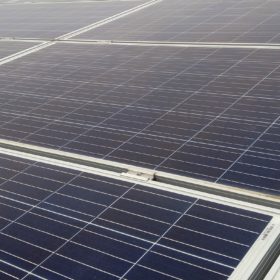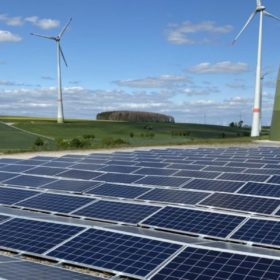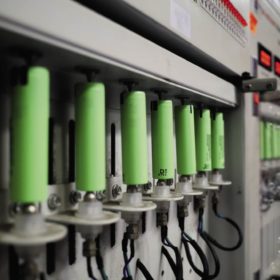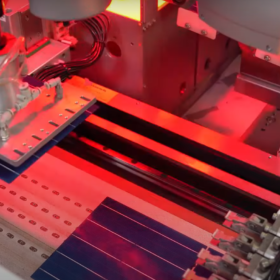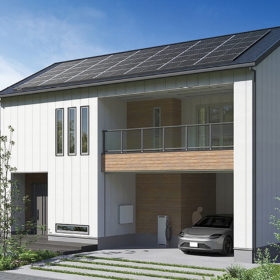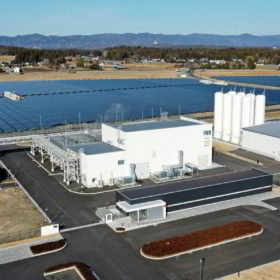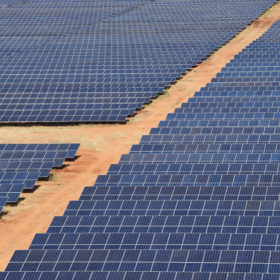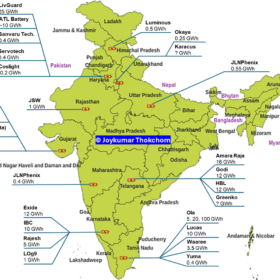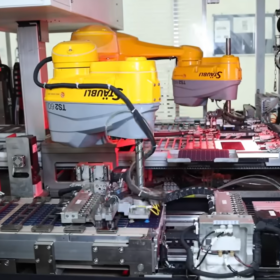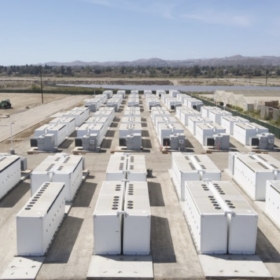Sembcorp to deploy more than 400 MW of PV at coal facility in Bangladesh
Singapore’s Sembcorp plans to install several solar plants near 1.4 GW of coal power capacity that developers are now building in Bangladesh.
Adani Green becomes world’s largest wind-solar hybrid power developer
The developer has commissioned a 450 MW wind-solar power plant in Rajasthan. With this, it has reached a cumulative hybrid power generation capacity of 1.44 GW.
ACE Green to set up lithium battery recycling plants in India
US-based ACE Green is setting up lithium battery recycling plants in Uttar Pradesh and Gujarat, where it will use a zero-waste hydrometallurgical recycling process to extract valuable materials from dead batteries.
Sterlite Power acquires Kishtwar transmission project in J&K
The project comprises a 400/132 kV gas-insulated substation at Kishtwar and a 400 kV Kishenpur-Dulhasti line-in line-out transmission line.
Waaree Energies emerges as India’s biggest solar module supplier
The Mumbai-headquartered solar manufacturer supplied 17% of the overall 1.28 GW of solar modules shipped in India during Q3 2022.
No funding for new coal in 2021
The renewable energy sector (solar and wind) recorded project finance deals worth INR 33,893 crore ($4,598 million) in 2021. No new project finance for coal was reported.
Panasonic unveils vehicle-to-home system for PV-powered homes
Panasonic claims that its new vehicle-to-home system can increase the self-consumption rate of residential solar and storage capacity to 90%.
Jindal Stainless signs 300 MW wind-solar PPA with ReNew Power
The stainless-steel manufacturer has selected ReNew Power to develop a utility-scale wind-solar project for its self-consumption.
Greenzo announces 250 MW electrolyzer fab in Gujarat
The Delhi-based renewable project consultant will invest $50 million in the Gujarat facility to manufacture anion exchange membrane (AEM) electrolyzers for green hydrogen generation. The project has received $1 million from Real Time Accelerator Fund as an angel investor in Greenzo.
REC arm tenders 1.25 GW of ISTS solar projects
REC Power Development and Consultancy Ltd has invited global bids to develop 1.25 GW of solar projects on a build-own-operate basis in India. Bidding closes on December 26.
